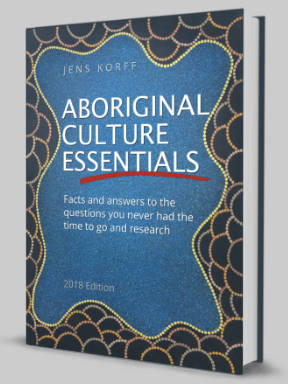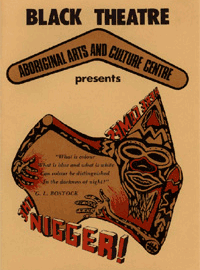Arts
Aboriginal theatres
Learn about Australia's first Aboriginal theatre company, founded in 1972, and other theatres that came after it.

Wishing you knew more about Aboriginal culture? Search no more.
Get key foundational knowledge about Aboriginal culture in a fun and engaging way.
This is no ordinary resource: It includes a fictional story, quizzes, crosswords and even a treasure hunt.
Stop feeling bad about not knowing. Make it fun to know better.
Nindethana Theatre
Nindethana Theatre is said to be Australia's first Aboriginal-run theatre company.
Jack Charles and Bob Maza founded Nindethana Theatre in 1972 in Melbourne. The ensemble produced a version of The Cherry Pickers by Kevin Gilbert, recognised as the first Aboriginal play. Later Jack became knowns as the "father of black theatre".
National Black Theatre

In 1972 the National Black Theatre emerged from Regent Street, Redfern, NSW, with a large number of plays, dance, activist poetry, satire and street theatre. It gave a new voice to the struggles of the 1970s and the Redfern Aboriginal community.
During its 5 years of operation, playwrights such as Kevin Gilbert, Robert Merritt and Jack Davis worked at the theatre, as well as actors such as Bob Maza, Lillian Crombie and Justine Saunders, cultural activist Gary Foley and director Brian Syron. [1]
Ilbijerri
Ilbijerri is the longest running Aboriginal theatre company in Australia and the only one in Victoria. Formed in 1990, Ilbijerri survived for many years on project-based funding, and has been initiating and developing performances in collaboration with its community and artists.
Ilbijerri’s plays explore a range of complex and controversial issues from a uniquely Aboriginal perspective. It's history includes six seasons of Stolen in 1992, national and international tours, finding critical acclaim and resonance with both Aboriginal and non-Aboriginal audiences alike. Ilbijerri is a Woiwurrung word that means “coming together for ceremony”.
Yirra Yaakin Noongar Theatre
Yirra Yaakin Noongar Theatre (pronounced Yir-raarh Yaarh-kin Noong-aarh) was established in 1993. It opened its doors with one successful funding application and 3 staff members.
A decade later, Yirra Yaakin Noongar Theatre had evolved into a world-class theatre company and a leader in community development.
Kooemba Jdarra
Incorporated in 1993 and based in Brisbane, Kooemba Jdarra Indigenous Performing Arts produces contemporary performances that present the stories of Aboriginal people throughout Australia and internationally.
The company is a not-for-profit organisation that receives funding from the government and corporate sponsors. Kooemba Jdarra also receives ongoing support from the Aboriginal community.
Challenges for Aboriginal theatres
Some audiences perceive Aboriginal art to be a serious and educational experience. [2] They expect traditional productions to feature spirituality and mythology or injustices and social issues.
This expectation can be a barrier to visiting theatres, especially when people are seeking entertainment. "Sometimes I just want to relax and just not worry about what’s wrong with Australia," says a theatre audience member. [2]
The image of Aboriginal theatre as educative may, therefore, present a barrier at times for these audiences and a challenge for the theatres to overcome with more entertaining and light-hearted productions.